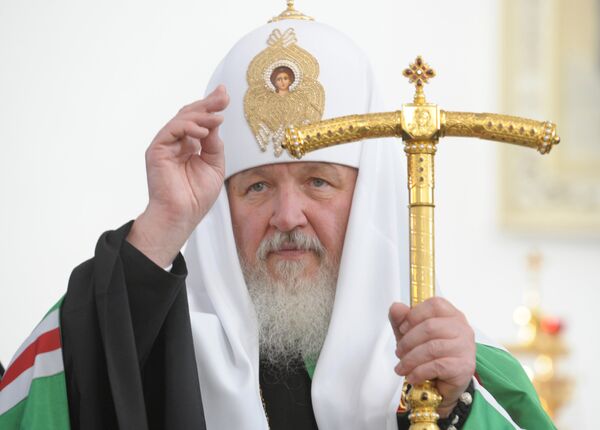Patriarch Kirill, the head of the Russian Orthodox Church, asked for forgiveness from all those who he might have offended on the day when the church is marking Forgiveness Sunday.
On this day, the clergy and Orthodox believers ask each other for forgiveness ahead of Great Lent beginning on Monday.
During Great Lent, believers in particular abstain from meat, fish, eggs and dairy products. But the true purpose of fasting is not abstention from these products by itself. Fasting helps people cleanse their souls of sin and learn to fight bad habits and dark thoughts, as well as to control their desires. In this way believers prepare, through prayer and fasting, for Easter, Christianity's most important feast, commemorating the Resurrection of Jesus Christ.
This year Eastern and Western Christians will mark Easter on the same day, April 24.
The fasting period before Easter in Eastern Christianity lasts 48 days. The first 40 days of the period are called Great Lent, symbolizing Jesus spending 40 days in the wilderness before being tempted by Satan.
They are followed by Lazarus Saturday, commemorating Jesus raising Lazarus of Bethany from the dead, and Palm Sunday, when Jesus entered Jerusalem, and then by Holy Week, the last week of the fasting period. Holy Week lasts until Easter Sunday but does not include it.
The tradition of mutual forgiveness before long-time fasting began in the first centuries of Christianity. In Egyptian monasteries, people gathered, prayed, asked for forgiveness and went into the desert for fasting and seclusion. Some of them never returned.
MOSCOW, March 6 (RIA Novosti)


